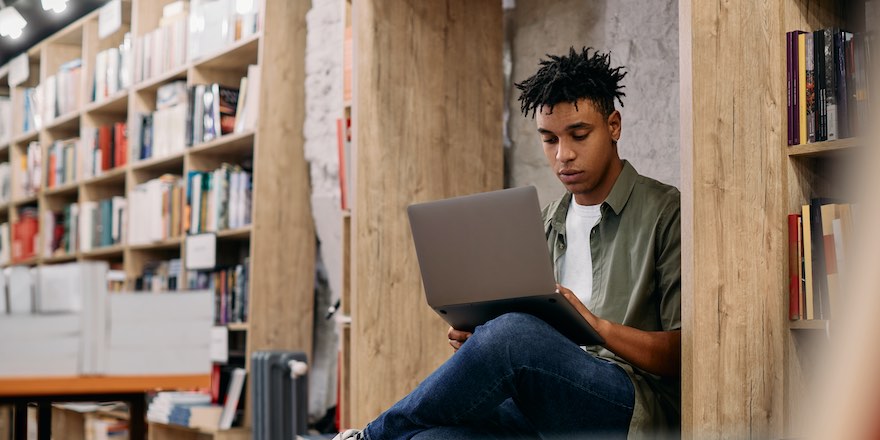Building a Better Study Session
Check out these tips to help you get things done.

Written by Rebecca Duarte, a first-year Bachelor of Arts in Digital Media Studies at VIU.
As a student, you are probably juggling many classes, jobs, and activities. When mid-term time rolls around, stress levels can reach a peak. The best solution is to do more with the time you have, not try to make more by skipping on sleep.
Procrastination can be your enemy in this situation. Parkinson’s Law predicts that the amount of work expands to fill the amount of time you have allotted to complete it. Or, if you’re given a project on Monday that’s due on Friday, although it’s possible to complete the project before Wednesday, you will take all five days to complete it. The solution to this is what I’d like to call Nike’s Law: “Just do it.”
Here’s a few tips to help you get things done.
Set up a good study area
Studying in your living room with a TV on nearby is not the best idea when you want to be productive. Keeping away from distracting areas is a good way to boost productivity. The VIU library has an allotted silent study area with closed-off desks. This can help you stay concentrated and get a good amount of studying done even though you’re surrounded by other students.
It is also a good idea to make sure you bring everything you need to avoid having to leave to get something. Bring all your study materials, books, laptop, chargers and, most importantly, water and a snack.
Focus on one thing at a time
With many courses, jobs, and other extra-curricular activities, it is important to focus on one task at a time. It can get overwhelming to think of the mountain of work there is to complete. Recognizing which task is most and least important and arranging them accordingly helps take that first step towards climbing the mountain. Give each job its due diligence before you move on to the next task.
Try the pomodoro technique
This style of working was invented in the 1980s. You study or work for 25 minutes at a stretch with no distractions or breaks. Then you take a five-minute break, followed by another 25-minute stretch of work. This is repeated four times, after which you can take a 15-30-minute break. This divides working time into manageable sections. It also helps break down those big tasks that we often put off.
Do not take breaks on your phone
Fill your break with anything that gives your brain time to rest and disconnect. Using technology will stimulate the brain further. Besides, we’re all victims to time-consuming apps like TikTok and Instagram. Scrolling for five minutes turns into two hours in the blink of an eye.
It is easy to lose control of our social media usage when it’s operated by a short swipe of a finger. Instead, playing brain games like Sudoku, memory-related games, or doing a crossword puzzle can help you be more productive when working.
Take a movement break
Physical exercise is also known to boost memory, improve sleep, and reduce stress, all things that can make our brains work better. A walk outside, a quick workout or jog, or even stretching can reinvigorate your brain, increasing productivity.
Tell a friend
Making a to-do list is the easy part. Keeping to it is where it gets tricky. As humans, we need rules, regulations, and someone or something to answer to. So, telling a parent or friend about what you plan to do in a day and asking them to check in at the end of the day is one way to motivate yourself into doing the work.
Get enough shut eye
It is important to get enough sleep. For some people that could mean six hours, for some eight. Planning out your day to include a consistent bedtime each night is important to ensure you rest well and can then work well the next day. Most laptops and phones have a night light setting that dulls the screen after a certain time to prepare our eyes for sleep. This could also be a useful feature to not only get our bodies ready for rest but also reduce the use of technology.
By incorporating these practical tips into your study routine, you might be able to break free from the procrastination cycle and be more productive. Have a great semester!
Learn more about Vancouver Island University